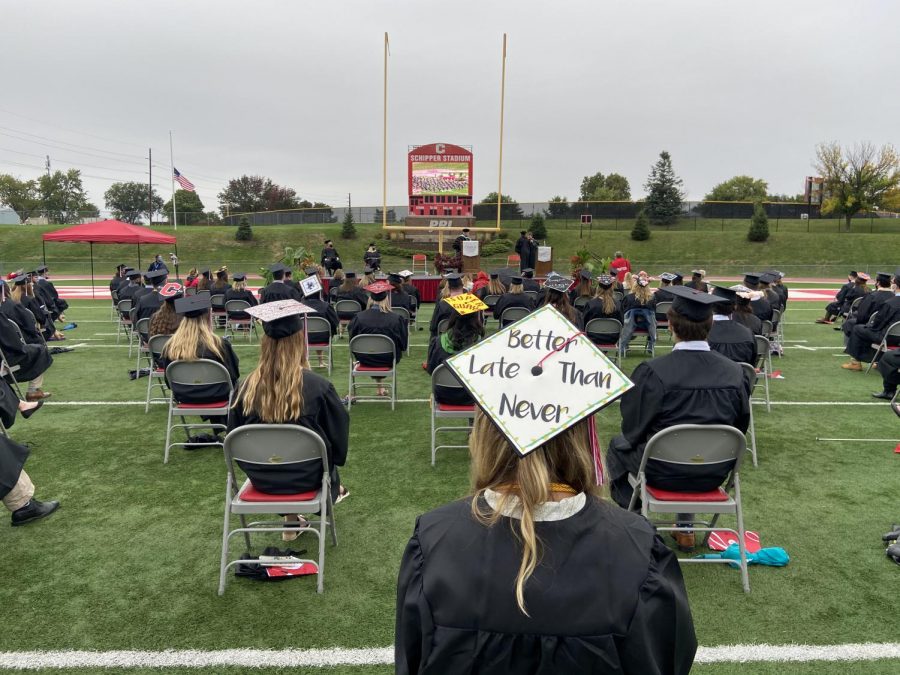Graduate School Should Be an Alternative, Not the Solution
There is no doubt that taking the leap and going to graduate school is effective in teaching students about more advanced concepts of business management and how to network successfully. Many graduates have used these classes and in-person interactions to strengthen their communication, leadership, critical thinking and information technology skills. Because of this, MBA graduates are able to fill positions in tech, healthcare, consumer goods, government, nonprofits and many other industries.
In addition to the benefits of receiving an MBA, the types of people these graduates meet consist of recruiters, entrepreneurs, C-suite executives and other prominent figures in business. The popularity of an MBA among all college majors is mainly due to MBA graduates receiving full-time job opportunities and lucrative salaries. When comparing the average annual incomes of people with a BBA and those with an MBA, MBA graduates gross approximately twice as much as BBA graduates. Although getting an MBA is considered one of the most expensive graduate degree programs, the high return on investment makes up for the burdensome expenses during graduate school. Unfortunately, many current MBA students are losing the satisfaction of pursuing their graduate degrees as their courses and in-person experiences are transitioning online.
The pandemic has forced many businesses, primarily in transportation, hospitality and professional sports, who hire MBA graduates and interns to halt these programs. According to an analysis by Poets & Quants, at the top 25 business schools in the country, MBA employment rates at graduation dropped an average of 22% from the MBA class of 2007. Current MBA students have taken notice, as many plan to defer graduate school until the U.S. economy recovers and business operations resume as usual. For the incoming and returning students, the central promises of graduate business school are now in jeopardy as thousands of MBA students worldwide are studying from home. Due to these disruptions in the job market and graduate schools, business students should rephrase their main concern from: “Should I pursue an MBA now?” to “What specific skills do I need to thrive in the workforce today?” Even when a safe and accessible vaccine is developed and COVID-19 restrictions are lifted, BBA students should enter the workforce rather than get an MBA right after college.
The main reasons why working at an entry-level position is preferable are rooted in the misrepresented and hidden data regarding the salaries of MBA graduates. First, it is essential to know the underlying reasons for the discrepancies in wages between non-graduate students and graduate students. Although MBA grads make around twice as much as BBA grads, an important detail that is frequently overlooked is that this pay gap also involves 5-9 years of professional work experience.
Ironically, business students with little to no experience who pursue an MBA are acting counterintuitively to the main reason for going into the business realm. Their situations involve racking up more student debt and wondering whether an MBA is a smart investment. Considering that employers greatly value the name of the schools they hire from, this has created a large wage disparity between the top 25 business schools and bottom-ranked business schools. What might seem like a generous living wage is only the tip of the iceberg. A Harvard Business graduate earns around $115,000 annually on average, while a business graduate from a bottom-ranked business school will roughly gross an average of about $60,000 annually. Even though MBA graduates have key skills in critical thinking and analytical skills, their knowledge of more specific concepts such as accounting, finance, operations and marketing is generally broad. Thus, it is possible that companies only intend to hire employees with specific or specialized knowledge in their particular area of business. Dedicating an entire two-year period towards studies and spending hundreds of thousands of dollars on a degree can be wasted if a graduate does not meet their desired job requirements.
For these reasons, it is crucial to understand that sacrificing debt for a higher paying job is not a guarantee, and graduate school should always be an alternative plan for immediate business employment. Every BBA student should utilize their undergraduate degree as soon as possible by seeking employment and gaining business experience in the workforce. Delaying these opportunities and blindly following a norm has hindered the average business undergraduate student’s success.
Mikael La Ferla, GSB ’23, is a business administration major and information systems minor from Philadelphia, P.A.







